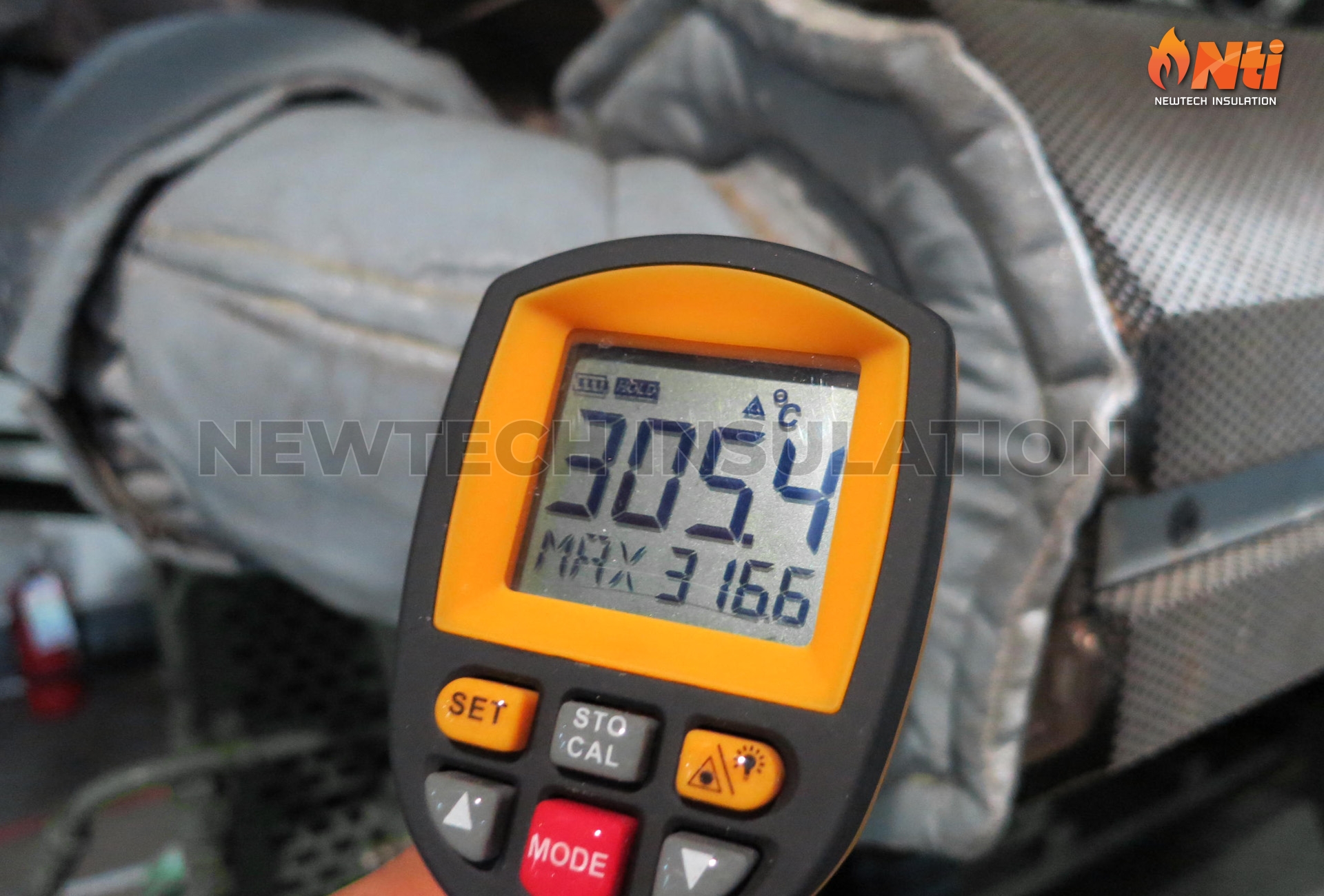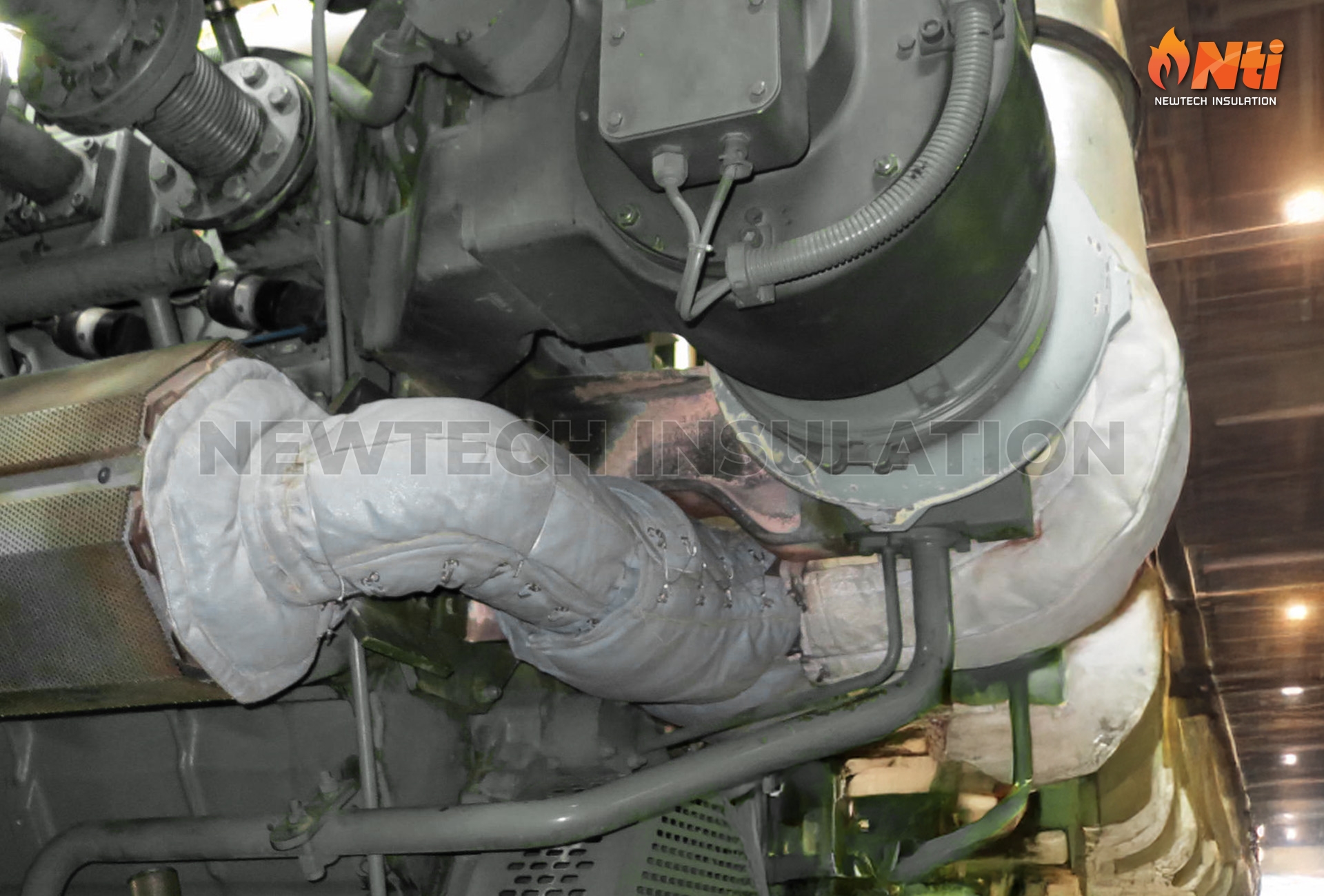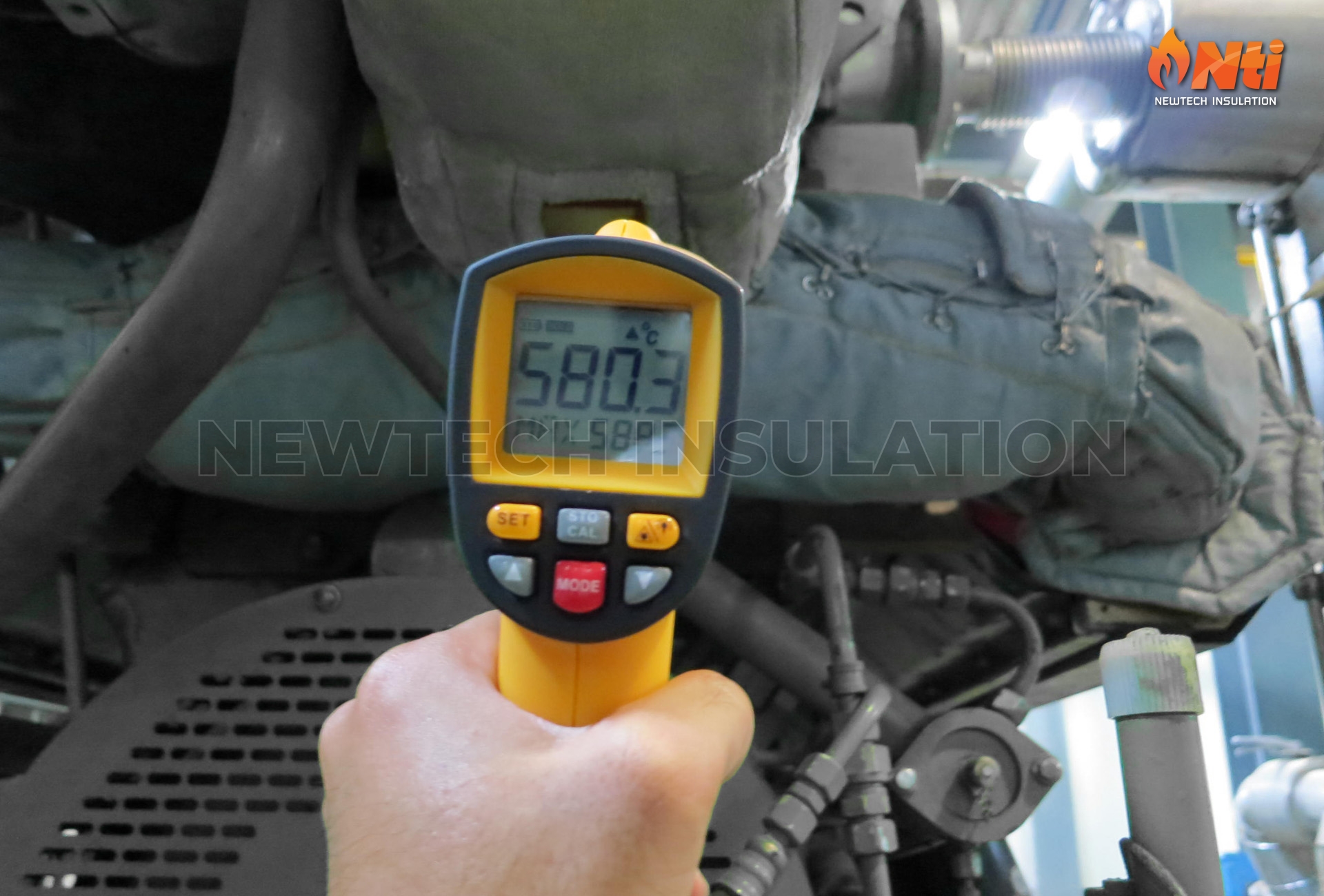







Any unauthorized copying, reproduction, modification, or distribution of any part of this content is strictly prohibited without written permission from Newtech Insulation Company Limited. Any violation will be prosecuted to the fullest extent of the law.
Problems and Causes
Heat generated from Gas Engines has multiple impacts, particularly the loss of thermal energy that could be utilized in the production process. Additionally, high temperatures affect the working environment, reducing the lifespan of surrounding equipment and increasing fire risks. Employees face unsuitable temperature conditions, which can lead to fatigue and occupational health and safety risks. Traditional thermal insulation systems typically consist of multiple layers that require time-consuming installation and removal. When engine maintenance or inspection is needed, technicians spend significant time removing and reinstalling the insulation system, resulting in extended downtime that impacts production capacity and operational costs.
While initial investment in improving heat management systems and maintenance may be high, it reduces long-term operational costs through energy savings, reduced maintenance time, and enhanced employee safety, contributing to long-term business sustainability.
Improvement Approach
Installing removable insulation for Gas Engines is a solution that addresses all aspects of operation, including efficiency, convenience, and safety. NTi has recommended ZAVE® removable thermal insulation, which features special water-resistant and chemical-resistant properties. Importantly, it is non-flammable, enhancing operational safety.
Given the frequent monthly assembly and disassembly requirements, NTi chose high-density insulation, which provides greater durability than conventional thermal insulation, resulting in longer service life and better return on investment. ZAVE® insulation’s outstanding properties include fire resistance, water resistance, and easy cleaning. It helps maintain appropriate engine operating temperatures, enabling maximum engine efficiency and energy savings.
In terms of safety, besides being non-flammable, the insulation reduces heat radiation from the engine, creating suitable workplace temperatures, reducing heat-related accident risks, and establishing a safe working environment for operators.
Addressing heat issues in Gas Engine areas with ZAVE® insulation represents a valuable long-term investment. With comprehensive features including water resistance, chemical resistance, fire resistance, and high durability, organizations can reduce maintenance and insulation replacement costs while elevating workplace safety standards.
Improvement Results (with 25mm Insulation Thickness)
| Comparison Table |
Average Temperature (Celsius) |
Percent |
| Areas without ZAVE® insulation | 580.3 | 100.00 |
| Areas with ZAVE® insulation | 305.4 | 52.62 |
| Reduction | 274.9 | 47.38 |